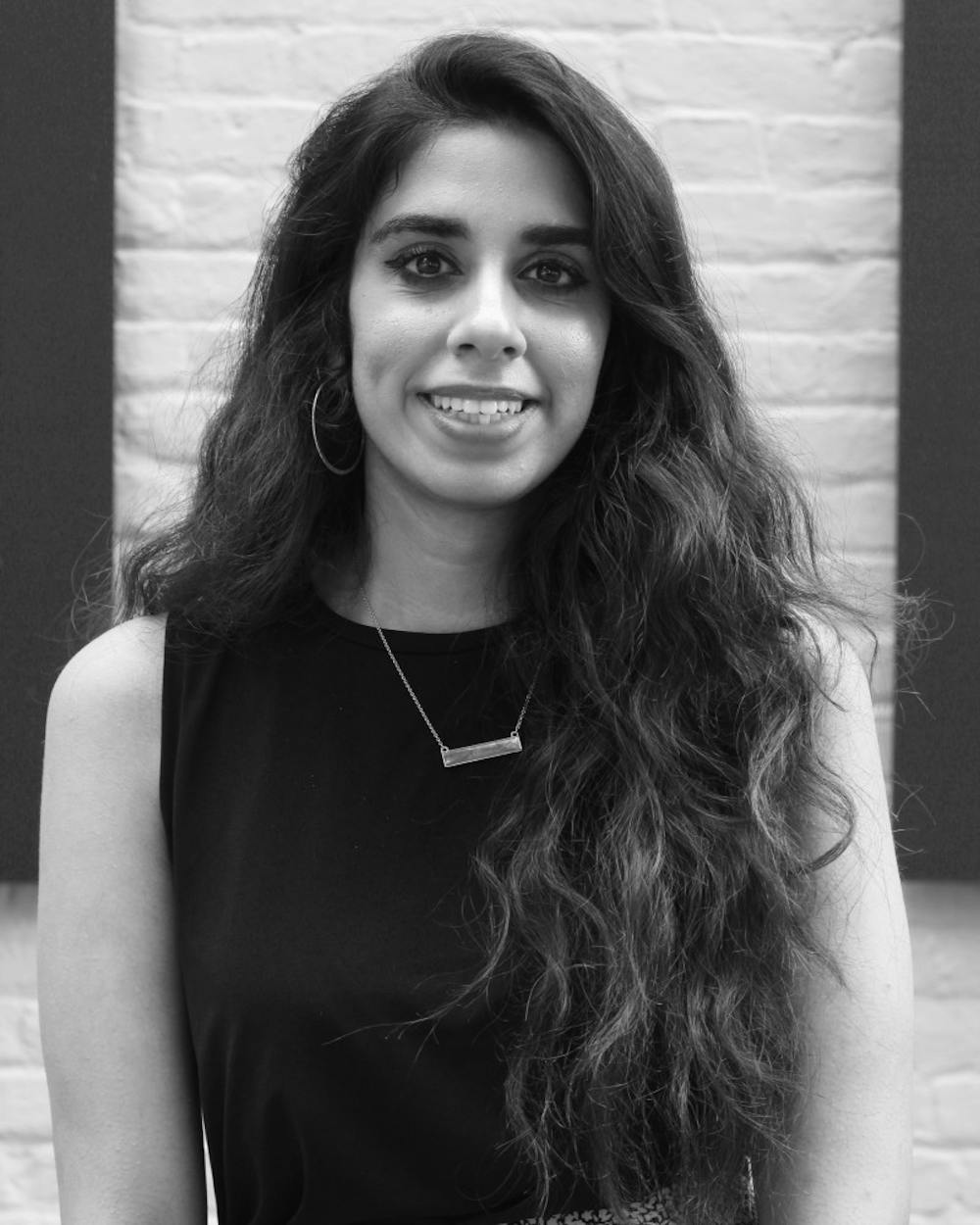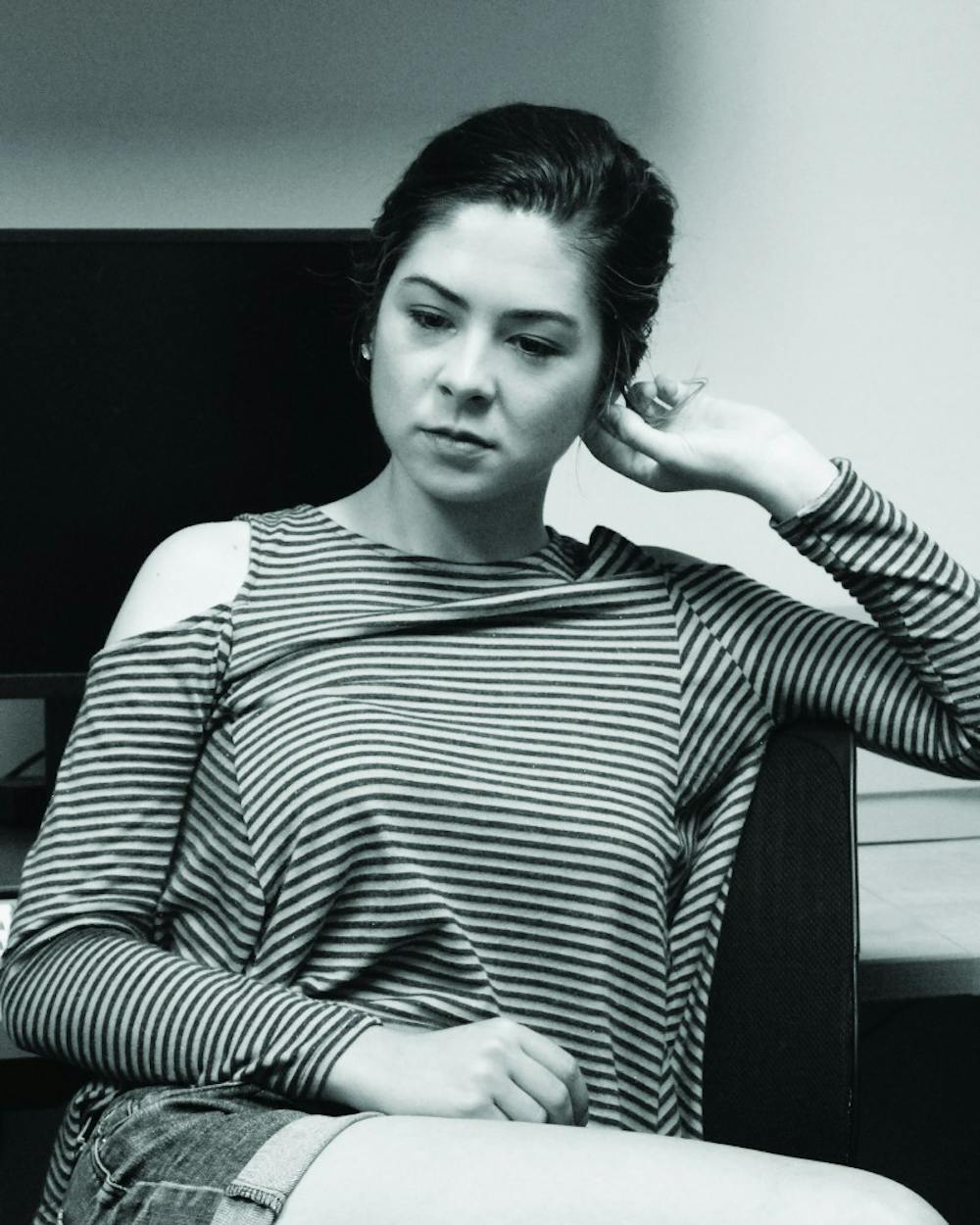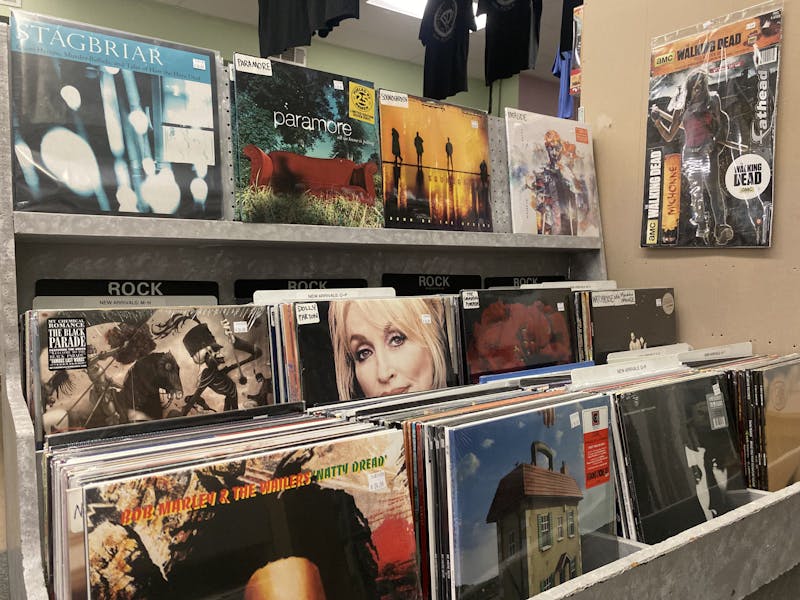This interview transcription is the first of four installments in a new, recurring series called While I Have the Floor. The concept for this piece evolved from a desire to provide a space in our magazine for considerate, thoughtful discussion of political, religious and cultural differences between student organizations. Diversity grows along with the student population every year, and as a magazine, we want to be a platform for every student voice, as long as they have something to say.
The two women who joined me were Almeera Lateef and EA Matthews. Lateef is the president of the Muslim Student Association, and Matthews works as a college leader for Young Life, a Christian outreach organization. This interview has been edited for length and clarity.

Photo by Mark Maddaloni

Photo by Mark Maddaloni
-----
How did you get involved with your organization?
MATTHEWS: I participated in Young Life in high school, and I knew I wanted to lead in college. You go through an intensive training process for a few months, and then a background check to make sure you’re qualified to lead high school students. It’s something I’ve wanted to do since 10th grade. It changed my life, and I wanted to give back.
LATEEF: For me, during my freshman year, a good friend of mine from home told me about the Muslim Student Association. I didn’t really know if I wanted to join, but once I started going to meetings, I really loved it. [When I ran for president,] I wanted to change the way the MSA was working, get more people involved and combat the stigma around joining because I loved it so much once I gave it a chance.
What stigma do you see around joining a religious group?
LATEEF: For the MSA, what I had to get past was that lots of Muslim girls cover all the way up and wear hijabs, and I don’t. I had to get past that to start going and start feeling accepted. Some other people who I’ve encouraged to come with me to meetings are worried that other Muslims will judge them, either for being too religious or not religious enough. Lots of different clubs on campus have different stigmas, though; that was just one of ours.
MATTHEWS: I think one of the biggest ones is that because Young Life reaches out a lot to high schoolers, people think it’s a group full of hypocrites. In general, growing up in the South where lots of people are socially Christian, you get people who say they’re Christians and then don’t live like it. Then, since Young Life is a national program, there are lots of people who went to high schools where it was poorly executed, and they had a bad experience. And so they think, “Oh, it’s just a meaningless thing,” or that Young Life practices a religion of judgmental people, and that stigma can be hard to fight.
Did you grow up in South Carolina?
MATTHEWS: Yes.
LATEEF: Yes, me too.
MATTHEWS: Like 10 minutes away from each other, actually.
Did you grow up in religious households? Was that formative for you?
MATTHEWS: Young Life made my faith real for me. I was Christian in the sense that most people in the South grow up — nominally Christian. It didn’t become a formative aspect of my life until Young Life.
LATEEF: I’ve been pretty religious throughout my life, but I feel like recently it’s grown more. Being president of an organization that teaches people — tells them what’s going on in the world — and what’s going on in the Qur’an has made me a more religious person in aspects that I wouldn’t have considered when I lived at home.
Do you feel like, on campus, there’s a stigma around religion in general?
MATTHEWS: Honestly, I feel like it depends on the major. In most humanities courses, you go in with the worldview that God doesn’t exist. I feel like there are considerably fewer Christians who are English majors than there are who are business majors. There’s a stigma, though, in a place like the Honors college, that you’re religious, therefore you must be ignorant of facts.
LATEEF: I would say the science majors too, because when you’re discussing the theory of evolution, both Christianity and Islam run into problems with that.
MATTHEWS: I would say that in college, we act like not being religious is the absence of any philosophical biases. I think what would be helpful is realizing that the predominant nonreligious worldview in academia does come from a very specific historical moment. We’re not ridding ourselves of all biases by being nonreligious; we’re sort of taking up new ones. And that’s not a bad thing, necessarily, but I think it’s helpful to be aware.
LATEEF: Obviously, there’s a lot of cultural stigma in general around the Muslim community. During our meetings, we try to instruct students how to deal with hate when they see it. Like, the day after Osama Bin Laden was killed, someone came up to me and was like, “Oh, sorry your dad died.” And I was shocked, but I feel like when you return their attack or curse them out or yell at them or show them that their negative words affect you, they accept the perception that they have of Muslims as true. I feel like it’s important to keep a positive attitude and to represent our religion in a positive light, especially when there’s so much negative news.
As student leaders, do you have a vision for the future of your group?
LATEEF: I definitely want MSA to grow. Currently, we have about 40 members, which is a lot for a university with 400 Muslim students. The problem is, if we want any kind of initiative done, we need a larger group. Like MSA spent $4000 on a prayer room, but it got ruined in the flood three years ago, so Muslim students have been praying in a cubicle in Close-Hipp for the last two years. Now, the new health center has an interfaith room where students can go to meditate or pray, which has been really amazing for us to have a permanent space. I’m also working to get the conversation started about excused absences for our religious holidays. I’m also interested in starting a small group Qur’an study for interested students. Above all, I feel like if you are Muslim in any aspect, in name or in dress or in deep faith, you should be able to feel comfortable coming to our meetings and interacting with other Muslim students. We’re stronger together, and it’s better for all of us if we have one, united voice on campus.
MATTHEWS: Since Young Life is so widespread, I don’t have a lot of control over the kind of things we do, but I really love how we reach out into the community. I love how it forces you to be active in your religion — like it’s something to be lived instead of just learned. I also feel like there are so many religious groups on campus that we could stand to collaborate more on service projects or reaching out to international students who need a community for the six months or year that they’re here. We could also stand to have more interfaith events, especially between Islam and Christianity, since they’re the two biggest evangelical religions, which are meant to be for the whole world instead of a specific geographical region or a specific ethnic group.
LATEEF: I totally agree. I didn’t know so much about Christianity until I started having conversations with my friends about our similarities and differences. If you’re not going to talk about, no one’s going to talk about it, and no one’s going to be comfortable talking about it. Everyone should be comfortable exploring their options and learning as much as they can from their roommates or classmates or friends.


